President Obama predicts economic "Armageddon" if the debt ceiling isn't raised by the Aug 2 deadline. Democrats want tax hikes. Republicans want spending cuts. Gwen Ifill drills down on the facts & fiction surrounding the budget crisis with Michael Duffy, TIME Magazine; Gloria Borger, CNN; John Dickerson, Slate Magazine/CBS News; David Wessel, The Wall Street Journal.
Full Episode: July 15, 2011
Nov. 03, 2014 AT 4:39 p.m. EST
TRANSCRIPT
Notice: Transcripts are machine and human generated and lightly edited for accuracy. They may contain errors.
MS. IFILL
: Washington’s latest showdown. Will the debate over debt and deficit drive the nation to the brink, or is it just another example of a gridlocked Capitol that can’t reach agreement even when they agree, tonight on “Washington Week.”
PRESIDENT BARACK OBAMA
: If we can’t do the biggest deal possible, then let’s still be ambitious. It is constructive to say that if Washington operates as usual and can’t get anything done, let’s at least avert Armageddon.
MS. IFILL
: But a debate over whether to raise borrowing limits exposes a deep policy and political divide.
REP. ERIC CANTOR (R-VA)
: We’re at $6.2 trillion. They’re at $1.5 trillion at best. And that’s just the way it is.
SEN. MITCH MCCONNELL (R-KY)
: Republicans refuse to be drawn into this legislative trap.
SEN. NANCY PELOSI (D-CA)
: No jobs bill in sight that is worth its salt, and yet dealing recklessly -- dealing recklessly with our economy.
SEN. HARRY REID (D-NV)
: Why are some Republicans in Congress still saying that a first-ever default on our nation’s financial obligations would be no big deal?
MS. IFILL
: Wall Street, bond rating agencies, and the Federal Reserve sound the alarm.
BEN BERNANKE [Fed Reserve Chairman]
: Would create a very severe financial shock that would have effects, not only on the U.S. economy, but on the global economy.
MS. IFILL
: While some Republicans say it’s a phony problem.
REP. MICHELE BACHMANN (R-MN)
: This is a misnomer that I believe that the president and the treasury secretary have been trying to pass off on the American people.
MS. IFILL
: Who’s right? Who’s wrong? Where are the honest brokers and what happens next? Covering the week: Gloria Borger of CNN, John Dickerson of “Slate” Magazine and CBS News, Michael Duffy of “TIME” Magazine, and David Wessel of the “Wall Street Journal.”
ANNOUNCER
: Award-winning reporting and analysis, live from our nation’s capital this is “Washington Week” with Gwen Ifill, produced in association with “National Journal.”
(Station announcements.)
ANNOUNCER
: From Washington, moderator Gwen Ifill.
MS. IFILL
: Good evening. When the president of the United States starts using words like Armageddon, you can be forgiven for wondering how we got to this point. Short version: leaders in both parties agree that borrowing limit should be raised and that the deficit should be cut, yet they seem no closer tonight to figuring out how to do it than they were this time last week.
The basic options on the table: the big deal, about $4 in budget cuts, including retrenchment on Social Security and Medicare with some revenue increases. The medium deal, about $2.5 trillion in cuts with no revenue increases or tax hikes. And the save the face deal, a debt ceiling increase with no guaranteed budget cuts championed by Senate leaders.
At a White House news conference today, the president resorted to bakery metaphors.
PRES. OBAMA
: I think about this like a layer cake. You know, you can do the bare minimum, and then you can make some progressively harder decisions to solve the problem more and more. And we’re in a position now, where, if we’re serious about this and everybody’s willing to compromise, we can, as I said before, fix this thing probably for a decade or more.
MS. IFILL
: But Speaker John Boehner, who only last week seemed tantalizingly close to striking his own deal with the president said today the White House is just not being serious.
SPEAKER JOHN BOEHNER (R-OH)
: Listen, we’re in the fourth quarter here. Time and again Republicans have offered serious proposals to cut spending and address these issues. And I think it’s time for the Democrats to get serious as well.
MS. IFILL
: How did we come to this pass, John?
MR. DICKERSON
: Well, it’s a sign of how far apart they are that the president’s using baking metaphors and John Boehner’s using sports metaphors. They can’t even get their metaphors to line up. Here’s how we got here and I’ll do just the recent history because we’ll all be chiming in here. But a week ago, we thought we were in a pretty good place. Boehner, the Speaker Boehner and the president were in a room together. They were working at maybe a deal together. And the two – it was the big deal, the $4 trillion, approaching $4 trillion. And the president was promising he would cut even some things that Democrats loved, Social Security and Medicare. Entitlements – there would be changes in that. And John Boehner was saying, well, we might be able to work out the tax part of this deal in a way that would raise revenues, but I can agree to that if you’ll do this other thing.
Well, the White House says that Boehner couldn’t sell that to his own side. House Republicans say, yes, well the president backed off of entitlements. And once they started splitting apart, well that’s when it really fell apart for both sides. So this week, we had daily meetings at the White House. We had two presidential press conferences, charges and countercharges of bad faith, and we’re no closer to a deal tonight. In fact, those two – first two options you offered look like they’re off the table. They’re just trying to get any kind of deal at all, the face saving deal you talked about, and it’s going to be a pretty ugly face.
MS. IFILL
: It seems to me, Michael, like a giant game of chicken.
MR. DUFFY
: Yes, it is. And we’re all, unfortunately in the cars. You know, my favorite development of the week was that the word compromise now means in Washington “surrender.” It used to mean give and take. I give a little. You give a little. Now, compromise means surrender. You just can’t do it. And the most interesting statistic I’ve heard all week is that you have to go back to 1991 to find a Republican member of Congress who has voted for a major tax increase. What we learned this week in a way that I don’t think fully Democrats or even Republican leaders realized was the debate inside the Republican Party about taxes is over. And it’s been over for quite some time. None of the options really that are even likely – that would be number two and number three – involve taxes. And I’m guessing that by the end of the day, when this does get done, even White House – in fact, president said taxes don’t need to be in this deal.
MS. IFILL
: So the White House talks are done.
MS. BORGER
: I think the White House talks have essentially become irrelevant. I do. I think it’s really kind of moved to Capitol Hill. But what’s interesting to me about watching these House Republicans is that I think you’re essentially seeing a leadership audition for leadership with the new members. These seem to be members that have come there on their own by way of the Tea Party and that they’re kind of looking for the natural leader to lead them in the Congress. John Boehner tried to cut a deal with Barack Obama, didn’t work out, okay. Eric Cantor blew up the original deficit talks with Joe Biden, walked out of those, went into a meeting this week with the president, got into a bit of tiff with the president. And he’s become sort of the spokesman for the Republicans on this. So you see, in a sense, that he’s a leader who wants to really represent this new group, which represents the base of the Republican Party.
MS. IFILL
: And which represents a real and enduring ideological divide. I mean, it’s not like these Republicans don’t actually believe that raising taxes is going to hurt the economy. They actually believe it should be on the table. But I was struck by hearing the president say he believes that too.
MR. WESSEL
: Well, I think that there is an ideological divide and it has to do with the role of government. The Republicans would like to use this confrontation to end up with a smaller government. They believe that’s better for the economy and they believe that’s better for them politically. The president believes the opposite. He is trying to clear the decks of the fiscal disaster so that he can do other things. And he sees a more activist role of government. So what’s unfortunate is that in order for each of them to advance their cases and to clarify their positions – the president has called this a clarifying moment. I think he’s right. The net result is we make no progress in either direction. The most likely outcome here is we avoid Armageddon.
I think that Senator McConnell’s proposal suggests that there will be some face saving way to avoid defaulting on August 3
rd
, but we will end up not having used the debt ceiling vote as a lever to get any closer to fiscal stability than we were before.
MR. DUFFY
: Usually in these things, particularly when budgets are involved, they get bigger. They add sweeteners. They add bribes to get votes. The package is started the size and they get much larger. We’ve shrunk. We – the Republicans put on six on the table in March. Obama came back at four. There’s a compromise in there somewhere I think. And we’re going to be lucky to get two now. And it might even be even smaller.
MS. BORGER
: And the way these deals usually come about is kind of immaculate conception. Nothing is on the table until the deal is done, and then suddenly it’s hatched and there it is. So you have Republicans saying – as we were talking about – where is the president’s budget plan? Where is the president – what are his specific entitlements cuts? And it was interesting at the press conference today because I actually heard the president talk about means testing Medicare. And I was sort of, really, okay.
MS. IFILL
: Let’s listen because both he talked about it – and actually interestingly, just before that, John Boehner talked about it a little bit today. Let’s listen.
SPEAKER BOEHNER
: I don’t want to preclude any chance of coming to an agreement, but they’ve been unwilling to put a real plan on the table. And without serious spending cuts, without real reform to our entitlement programs, this problem is not going to be solved.
MS. IFILL
: Well, then the president also spoke about means testing as well.
PRES. OBAMA
: We’ve said that we are willing to look at all those approaches. I’ve laid out some criteria in terms of what would be acceptable. You can envision a situation where for somebody in my position, me having to pay a little bit more on premiums or co-pays or things like that would be appropriate.
MS. IFILL
: Now, that sound you hear is Democrats screaming, liberals screaming, but it sounded like they were in agreement.
MR. DICKERSON
: Well, this is where they were last Saturday, and they were – this whole notion of the president’s got to put a plan out there, well, look at what happened to John Boehner when he even hinted at a possible tax deal with the president. He got killed in his party. I mean, these negotiations have to happen in quiet, and it was between the two men, and the president was offering these little olive branches or these little sacrifices. And he was willing – and this is what he said in the news conference today, I’m willing to take the hit from my party and also older voters. It’s not just Democrats. The president’s talking about messing with things with older voters. That was the group that he lost in 2008. So he’s taking a political risk and saying if I’m willing to take the hit, then Republicans should be willing to take the same kind of hit with their constituents when it comes to the question of taxes.
MR. WESSEL
: I think that what’s missing is anybody who seems to be able to put together a deal, in that when you spoke about the 1990 budget deal, there was Dick Darman, the ultimate Machiavellian budget director. There were people like Dan Rostenkowski and Bob Dole in the Congress, one a Democrat, the other Republican, who were skilled at this art of having legislative compromise amid public invective. And at the moment, there seems to be nobody, either in the administration or in the Congress, who can do that.
MS. IFILL
: What are the consequences because I’ve heard the secretary of the Treasury and I’ve heard the chairman of the Federal Reserve, and I’ve heard the president of United States, and any number of think tank wonks from here to there say catastrophe on August 3
rd
. And we’ve also heard these warnings from the bond rating agencies.
MR. WESSEL
: I think there’re two sets of consequences. I think it would be catastrophic if the government didn’t raise the debt ceiling. And I think that is now the sense of the leadership in Congress as well as the treasury secretary.
The United States government borrows 40 cents for every dollar it spends. And that’s not a good position to be in if you suddenly are not able to borrow anymore. And that’s just a direct effect. Never mind what it might do to the market confidence and the faith and credit the United States. If they don’t get a debt ceiling increase, the government will not be able to pay some bills.
The Republicans say, well, that’s okay. We’ll pick and choose which bills we pay, but the government will not be able to pay for them.
But there’s a second consequence that I think is just as important. If they raise the debt ceiling – you know, we’ve gone through all this pain and they don’t – we’re no closer to fiscal stability than we were before, that will also have consequences, and those won’t go away on August 4
th
.
MS. IFILL
: I don’t hear the panic.
MR. DUFFY
: No, in fact, I think one of the developments here that Gloria touched on a little bit is that there are 75 to 115 members of the House who actually believe that we don’t have to do this. Maybe the numbers are a little lower than that, but who think that maybe it would be good if the government went through the process of simply not paying for certain things anymore because they believe is – they believe a lot of different things about it.
MR. W
ESSEL: Well, they believe that’s the way to get the government to change.
MS. B
ORGER: And I might also add that 233 House members took a pledge in the last election not to raise taxes and they feel very bound by that because they know that their constituents are going to hold them to it.
MS. IFILL
: And when they heard the president say today, we’ve got to fix this before we can do other things, the other things they heard was – the president said investment – they heard spending.
MS. BORGER
: Right.
MR. DICKERSON
: Well, the problem with what Michael talks about is those people – House caucus had a meeting today in which they brought in one of their economists to say, no, no, you may never believe the president, you may not believe the treasury secretary, but this really is a big problem and you need to – this is serious. Stop denying that it’s going to be a bad thing. I don’t thing –
MR. WESSEL
: Not raising the debt ceiling.
MR. DICKERSON
: Not raising the debt ceiling would be a problem. But the problem with what Michael describes is even for this barebones deal that Senator McConnell put forward, which would raise the debt limit, but allow Republicans to vote against it, even that may not pass because of the group that Michael’s talking about. And the way they’re going to try to buy them off is by adding to the McConnell deal a bunch of spending cuts. Well, when you add those spending cuts, you may pick up one or two of these Republicans Michael’s talking about, but you start to lose Democrats. You may not be able to get, even for the barest bone deal 218 in the House.
MS. BORGER
: And what the president was talking about today is it’s clear that he would like an extension of the payroll tax cut. So if you’re going to give an extension of the payroll tax cut and you’re going to get tax cuts, as the president said, well then what are you willing to give for that? Close some loopholes, could that possibly work?
MS. IFILL
: The other thing the president was trying to do today was speak over our heads and speak over the heads of the negotiators and speak to America, and say they’re on my side. I’m happy to make this argument because they’ll end up on my side. Public opinion polls seem to be shifting in the president’s direction with political independents most concerned that a deal get done. But our partners at “National Journal” discovered this week that political insiders – that’s people here in Washington – reflect the divide here inside the Beltway. Ninety seven percent of Democrats predict catastrophic or major economic consequences if Congress fails to raise the debt limit, while only 59 percent of Republicans say the same and 29 percent say the impact would be minor. So how do those kinds of sentiments drive the debate?
MR. DUFFY
: Well, you know, what the president said – he did a lot of things in that press conference today. And two struck me. First, he was kind of executing a strategic withdrawal. He has said all along that he wanted the tax cuts and revenue hikes to be about three to one. It got to be five to one. Looks that now it might be 100 to zero. (Laughter.) I mean, it’s just – he’s negotiating –
MS. IFILL
: If I closed my eyes, I could have been listening to a Republican –
MR. DUFFY
: Exactly. So he has to explain to his voters and his backers that – why he’s maybe gotten himself in this position. The second thing is that he was kind of sandbagging the Republicans a little bit. He was saying, okay – at least, this is what I detected – we can go ahead with the short gap, Armageddon, face saving, door number three, but I’m going to just reserve the right to run against you all next year. And I’m going to talk about – and they amped that up at the White House this week. Jay Carney, the press secretary started talking about, you know, putting two wars and the tax cuts on a credit card. He came this close to saying this is really a Bush deficit, not really an Obama deficit –
MS. BORGER
: Without mentioning any names.
MR. DUFFY
: Without mentioning names. They just dropped enough signals to say this is where we’re going to go if you don’t take the big deal.
MR. WESSEL
: Do you think that –
MS. IFILL
: And in the middle of this all, I should point out, the president announces that he and the DNC have raised $86 million for his reelection campaign, blowing everybody else out of the war, which had to make people think, oh.
MS. BORGER
: He raised more money than all the Republicans combined.
MR. WESSEL
: You think the president is politically better off this week than he was two weeks ago?
MS. BORGER
: No, and I’m – but I’m wondering, and I wonder what you guys think, early on, the president said he would veto a short-term deal.
MS. IFILL
: He did.
MS. BORGER
: Right. He said 30, 60, 90 whatever. So he may –
MS. IFILL
: Oh, wrong, that was last week.
MS. BORGER
: Oh, sorry, it’s –
MS. IFILL
: Just a minute ago.
MR. DUFFY
: Earlier this week, right.
MS. BORGER
: So did he – everybody’s boxed – there aren’t enough corners for people to box themselves in, but the question is did – is the president now faced with this sort of conundrum because he said he would veto a short term deal and he may be confronted with a short-term deal that’s his best option.
MR. DICKERSON
: Right, to keep Armageddon from happening.
MS. BORGER
: Right.
MR. DICKERSON
: Right now, it looks like that’s not the path, but no path is clear. And the president has said – somebody in the administration said to me today, the president said both sides need to go, figure out their plan, and bring it back to me. There’re no meetings scheduled, but this person said, if there’s a meeting Sunday, that means there is a big problem. It means even door number three collapsed and it’s –
MS. IFILL
: Why – why is that?
MR. DICKERSON
: Because it means they can’t even agree on that – that face saving deal, that barebones thing –
MR. DUFFY
: Kick it down the road.
MR. DICKERSON
: – just lifts the debt ceiling. Even the plan that’s the most barebones deal would lift the debt ceiling and put a lot of political pressure on the president. And they’re saying even that might not pass. And if that’s a problem, then there is no exit strategy.
MS. BORGER
: Well, you know, the plan that Mitch McConnell hatched is so clever in so many ways –
MS. IFILL
: And complicated.
MS. BORGER
: – and complicated, but the very bottom line is Republicans get to vote against the debt ceiling, which they wouldn’t vote for otherwise. They get to vote against the debt ceiling. It passes. And they get to vote on a balanced budget amendment.
MR. DICKERSON
: And by the way, they get to do it three times before the president runs for reelection in November. The president has to make three requests. Each time Republicans vote against it, each time he gets –
MR. DUFFY
: But they don’t actually have to approve the cuts on the second and third time.
MR. DICKERSON
: Yes.
MR. DUFFY
: So it’s a total let’s just throw the ball, let’s punt the ball down the field.
MS. IFILL
: How much of this is affected by personalities? I mean, we saw many, many leaks coming out of these meetings this week, involving or another having a tantrum, someone walking out. I think Harry Reid said that Eric Cantor was childish and shouldn’t be at this table. The president today said, oh, it’s not all that bad. But there’s clearly something going on with just the personalities.
MR. WESSEL
: Yes, obviously and as Gloria said, people are auditioning. I think some of this was very well orchestrated by the White House, the dividing – putting a wedge between Speaker Boehner and Majority Leader Cantor was very shrewd. And so they made it look like they’re disarrayed. They can’t come to the table. But I also think that –
MS. IFILL
: Which is why you saw Cantor and Boehner come out and put their arms around together.
MR. WESSEL
: But I also think that, you know, I think – I kind of disagree with Gloria. I think the president kind of found his footing. And he was acting kind of presidential. And somebody must have told the White House that having the president talk about this is good for the polls –
MS. BORGER
: He was better publicly this week because the first time he came out, he was chastising everybody and – and that wasn’t working. This week, politically he’s better, but I don’t know if he’s any better off.
MS. IFILL
: Are they studying Newt Gingrich from 1995, when he was such a – the crybaby on page one on the “New York Post?”
MR. DICKERSON
: That’s clearly what they were trying to do with Eric Cantor. It was a totally – everybody in the Democratic Party suddenly was coming out and talking about Eric Cantor being childish, being impetuous, throwing the deal into trouble. Here you had the president and John Boehner quietly working together like leaders, and Cantor came in. But, you know, what’s interesting about the Cantor thing is that for the months before this, when you talked to people both at the White House and on the Republican side, they said Cantor was in the room with Joe Biden and he was working patiently a part of the deal. He was a totally honest broker player until it –
MS. BORGER
: But you need a poster child.
MR. DUFFY
: Until he discovered that Boehner was meeting secretly with Obama. And then he got upset.
MS. BORGER
: You need a poster child and they can’t make Boehner the poster child. And they can’t make Mitch McConnell the poster child because he’s working on the deal that could get them out of the mess.
MS. IFILL
: I want to take this into a big thing here at the end here, which is, you know, we’ve been all covering Washington for number of years cumulatively, and each time this happens, we know we’re going to come up with a deal in the end. But this time, it feels shakier somehow. Is it possible anymore to get broad bipartisan agreement on important things as long as each side has dug in their heels?
MR. DUFFY
: No, absolutely not. I think this week we see sort of two illusions shattered. The first is the sort of quaint Democratic notion proposed by the White House at the beginning of the year that now that the Republicans have a measure of responsibility, they will help us govern. That is wrong. They were wrong about that.
The second is that I think Obama was elected by proposing to the American public and particularly his supporters that we were moving into a post-partisan era, a time, when all sort of old battles of right and left in the 1960s – the things he criticized the Clintons for being and thinking and doing – was over. Well it turns out that’s not true. There’re still Republicans. They’re not like Democrats. There’re still quite a few of them. And that – that I think is the end – one thing about the Republican Party you can say this week, it’s not post-partisan.
MS. BORGER
: Well, you know, the lame duck session, which wasn’t so long ago, achieved a lot, but with a bunch of members of Congress who had been actually voted out of office. And so I sort of –
MS. IFILL
: Which is the only reason they came up with a deal in the end.
MS. BORGER
: Well, that’s –
MR. WESSEL
: But the whole deal is giving away money.
MR. DICKERSON
: Right.
MR. WESSEL
: That’s easy. I’ll give away to your people, give away to my people. This is hard.
MR. DICKERSON
: That’s right. We’re trying to make a deal in the age of austerity and with the president who’s really under in terms of the economy. And the whole threat here is that the economy for which he’ll get blamed – a greater share of the blame will fall on his head if there’s not a deal here and the economy goes south. And so there’s nothing to grease this deal. He can’t – nobody – both sides can’t give each other prizes like they did in the previous two deals.
MS. IFILL
: And here we are in Washington, arguing about this deal that nobody understands, but not really talking about the economy.
MR. WESSEL
: And I think that’s really important. I think that people out there must watch us and say these people are nuts. We have 9.2 percent unemployment. It’s going to be 2016 before we get back to anything near full employment. It’s not clear that the recovery is even getting better. And so I think this must be seen out there as people who are not really dealing with our real problems.
MS. BORGER
: And the president, most of all, wants to be talking about what he’s doing for you and he can’t. So this takes him completely off message.
MR. DICKERSON
: Although that’s what he was trying to do in the press conference today, was appeal to that idea and say, look, we were dealing with what you the American people want us to. I was willing to give, but these Republicans – and he kept mentioning the poll that showed that only 26 percent of Republicans believe with the Republican leadership’s position. In other words, they are so captive of their Tea Party wing that we can’t get a deal.
MS. IFILL
: Final thought.
MR. DUFFY
: He talked a lot about polls in today’s press conference for a president –
MR. DICKERSON
: He almost worried as of – around his shoulders –
MS. IFILL
: It felt like the president showed pollster in chief actually for a change. That was interesting. We’re going to talk about this some more in the webcast. Thank you all very much. We hope we made that a little clear for you. I’m not sure. But if we didn’t, join me every night on the PBS “NewsHour” next week, and we’ll try again. And for a taste of how little things seem to change, check out our website where we share a clip from a “Washington Week” budget debate that sounds very familiar, except this was 1995. You can find that at pbs.org.
And before we live you tonight, we want to send out condolences to the family of Betty Ford, surely one of the most forthright and colorful first ladies of our time, who was buried this week next to her husband Gerald in Grand Rapids, Michigan. When next will we see a first lady who dares to dance on the table in the Roosevelt Room?
See you next week, on “Washington Week.” Good night.
FROM THIS EPISODE


Full Episode: March 18, 2011
President Obama and the U.N. warn Moammar Gadhafi to stop military action against rebels or face consequences. Meanwhile, after the earthquake, tsunami and partial nuclear plant meltdown in Japan, the U.S. reviews nuclear safety and a look at the global economic impact of the disaster. Joining Gwen, Tom Gjelten, NPR, Coral Davenport, National Journal, and David Wessel, Wall Street Journal.


Full Episode: April 1, 2011
Encouraging new unemployment figures arrive as Congress debates the budget and tries to avoid a government shutdown. Also, the U.S. hands over some military control in Libya to NATO. Plus, the panel looks at the 2012 GOP hopefuls. Joining Gwen Ifill: Yochi Dreazen, National Journal; Greg Ip, The Economist; Naftali Bendavid, The Wall Street Journal; and Karen Tumulty, The Washington Post.

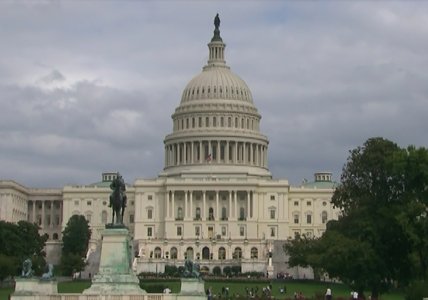
Full Episode: April 8, 2011
With a $39 billion spending cut agreed upon, the possibility of a government shutdown is finally over. The panel discusses why leaders of neither side wanted a shutdown in the first place, and how their constituents may feel. Joining Gwen Ifill: John Dickerson, Slate Magazine/CBS News; Michael Duffy, TIME Magazine; and Jeanne Cummings, Politico.

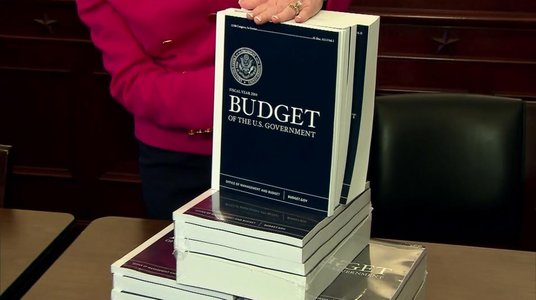
Full Episode: April 15, 2011
While President Obama and Rep. Paul Ryan both unveiled plans to cut $4 trillion from the national debt they continue to argue over how to do it. The GOP and Democrats continued to fight over America's deficit, from taxes to overhauling Medicare and Medicaid. This week: Susan Davis, National Journal; Jeff Zeleny, New York Times; Janet Hook, Wall Street Journal; John Harwood, CNBC/NY Times.

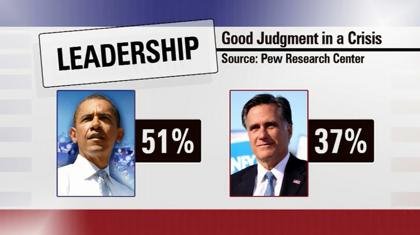
Full Episode: April 22, 2011
With gas prices on the rise, an S&P report lowering America's credit outlook, continuing debate over the deficit and a stalemate in Libya, President Obama's approval numbers have declined just at the moment he launched his reelection campaign. Joining Gwen tonight: David Wessel/Wall Street Journal; Coral Davenport/National Journal; Dan Balz/Washington Post and Martha Raddatz/ABC News.


Full Episode: May 6, 2011
After U.S. forces kill Osama bin Laden, America rejoices but the war on terror continues. The panel looks at the intelligence that led to bin Laden, the political and national security impact, and the strained US-Pakistan relationship. Joining guest host, Gloria Borger: James Kitfield, National Journal, Tom Gjelten, NPR, Peter Baker, New York Times, and Charles Babington, AP.


Full Episode: May 13, 2011
The impact of Osama bin Laden's death continues to ripple, straining the U.S.'s relationship with Pakistan. After a bump in the polls, Obama returns to domestic policy while the GOP presidential field adds a few more candidates. Joining Gwen: David Sanger, New York Times; Nancy Youssef, McClatchy Newspapers; John Dickerson, Slate/CBS News; Dan Balz, Washington Post.

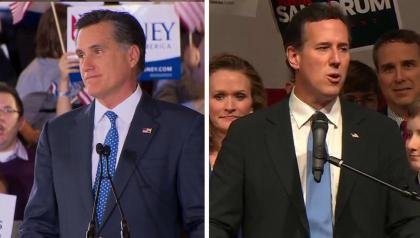
Full Episode: May 20, 2011
After infighting between New Gingrich and fellow republicans, the panel examines the current field of GOP candidates. Also, the table reports on campaign fundraising efforts, the scandal rocking the IMF, and the President's clash with Israel's PM on the path to peace in the Mideast. Joining Gwen: Jeanne Cummings/POLITICO, Michael Duffy/TIME, Doyle McManus/Los Angeles Times, Eamon Javers/CNBC.


Full Episode: June 10, 2011
As his top staff resigns, Newt Gingrich's presidential ambitions seem to falter while Democrats distance themselves from Rep. Anthony Weiner after he confessed to sexually explicit online activity. Also, a report on the future of Afghanistan as U.S. troops get set to withdraw. Joining Gwen: James Kitfield, National Journal; John Dickerson, Slate/CBS News; and Karen Tumulty, Washington Post.


Full Episode: June 17, 2011
Analysis of the 2nd GOP Presidential debate, and a new fact check feature 'Just the Facts.' Plus, details of VP Biden's negotiations on raising the debt ceiling. Also, the Pentagon and Defense Dept post-Robert Gates & controversy over the US involvement in Libya. Joining Gwen: Michael Duffy, Time; Nancy Youssef, McClatchy Newspapers; Dan Balz, Washington Post; and Jim Barnes, National Journal.


Full Episode: June 24, 2011
President Obama's announcement to begin drawing down U.S. troops from Afghanistan and what it means; the impact on class action suits because of the Supreme Court's Wal-Mart decision; and the latest on the growing GOP presidential field. Joining Gwen: Martha Raddatz, ABC News; Doyle McManus, Los Angeles Times; Nia-Malika Henderson, Washington Post; and Pete Williams, NBC News.

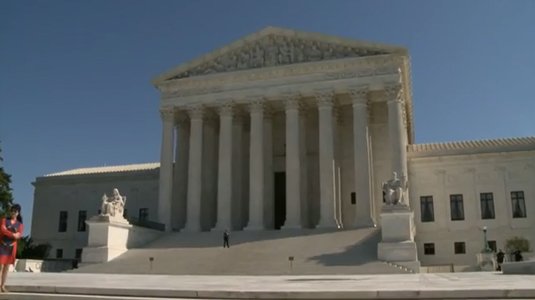
Full Episode: July 1, 2011
What will the global economic implications be if Congress does not raise the nation's $14.3 trillion debt limit? Also, Bachmann launched her presidential campaign. Plus, SCOTUS' ruling on the sale of violent video games to children. Joining Pete Williams: David Wessel of The Wall Street Journal; Major Garrett of National Journal; Jeff Zeleny of The New York Times; and Joan Biskupic of USA Today

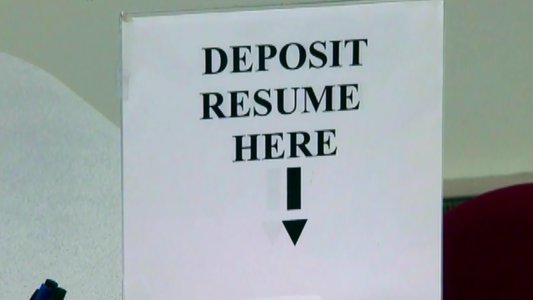
Full Episode: July 8, 2011
Discouraging June unemployment numbers help to frame the contentious debt ceiling negotiations. A look at GOP presidential hopefuls and their fundraising, and the White House changes course on acknowledging suicides in the military.


Full Episode: July 29, 2011
Lawmakers prepare to work through the weekend to reach a debt deal and avoid a U.S. default. What will it take to break the stalemate and how would a default impact Americans? Plus, how Obama, Boehner, and Reid have played it so far. Joining Gwen Ifill: Major Garrett, National Journal; Jeanne Cummings, Bloomberg News; David Wessel, The Wall Street Journal; and Karen Tumulty, The Washington Post.


Full Episode: August 5, 2011
The economy is the worst it's been in years. Why and how did we get to this point? Also, with all the infighting in Washington these past 3-months, how did the debt deal come together and how will it effect the 2012 elections? Also, voter confidence and its impact on the polls. With Michael Duffy, Time; Deborah Solomon, The Wall Street Journal; and Charles Babington, Associated Press.


Full Episode: August 12, 2011
Gwen Ifill reports from Iowa on the 2nd Republican primary debate and the Ames Straw Poll. Joined by Dan Balz, The Washington Post, they look at the testy exchanges on the debate stage. Plus, in the Washington Week studio, Judy Woodruff examines the White House's response to recent troublesome economic news with John Harwood of CNBC/The New York Times and Jackie Calmes, The New York Times.


Full Episode: September 16, 2011
President Obama took his jobs plan straight to voters this week amidst a bounty of bad news including a jump in unemployment benefit applications, and a spike in the number of people living in poverty. And analysis of the Tea Party debate. Joining Gwen Ifill: John Dickerson of Slate/CBS News, Beth Reinhard of National Journal, Charles Babington of AP, Michael Fletcher of The Washington Post.

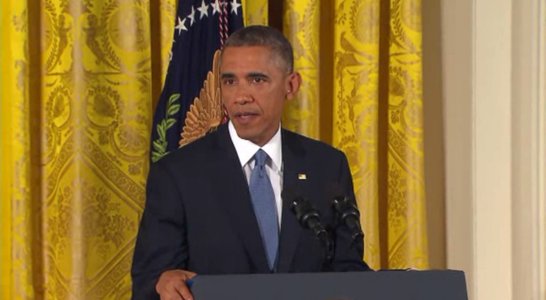
Full Episode: September 23, 2011
President Obama unveils his deficit reduction plan, with new taxes and spending cuts. Plus, Congress argues over disaster relief and a possible government shutdown. Also, Palestinians appeal for full membership at the UN. And the GOP presidential candidates debate.

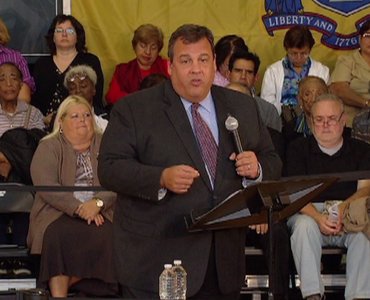
Full Episode: September 30, 2011
Airstrikes killed Anwar al-Awlaki, a U.S.-born Al-Qaeda leader in Yemen. At home, dissatisfied GOP voters want Gov. Chris Christie to join the presidential race. Also, President Obama feuds with his base. Plus, a stopgap bill temporarily prevents a government shutdown. Joining Gwen: John Dickerson, Slate/CBS News; Sam Youngman, The Hill; Major Garrett, National Journal; Pierre Thomas, ABC News.

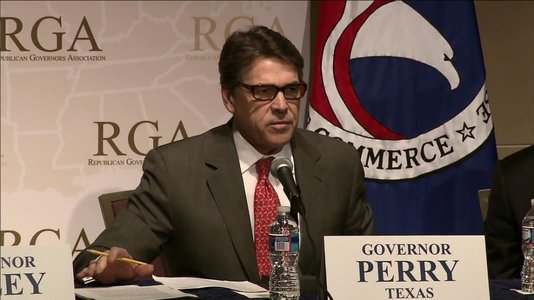
Full Episode: October 14, 2011
As the GOP candidates debate economics, President Obama promotes his jobs plan. But with its defeat in the Senate, what's next? Also, the strange story of an assassination plot against a Saudi Ambassador involving Iran and a Mexican drug cartel. Joining Gwen: Karen Tumulty, Washington Post; Michael Duffy, TIME; Alexis Simendinger, RealClearPolitics; James Kitfield, National Journal.

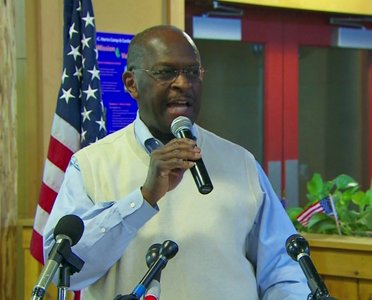
Full Episode: October 28, 2011
A long shot a short time ago, Herman Cain is shaking up the GOP race. But rising polls numbers brings greater scrutiny. And what happened to Rick Perry's surge? Also, the President tries to bypass Congress. Plus the clock is ticking on the Deficit Reduction Committee. Joining Gwen: John Dickerson, Slate/CBS News; John Harwood, CNBC/NY Times; Jackie Calmes, NY Times; Janet Hook, Wall St. Journal.


Full Episode: November 4, 2011
Alleged harassment scandals continue to dog Republican presidential frontrunner Herman Cain, as the other GOP candidates consider how to handle the controversy. Plus a discussion on the global economy, Greece, the G20 meetings, and new U.S. job numbers. Joining Gwen: John Harris, Politico; Chuck Babington, Associated Press; Alexis Simendinger, RealClearPolitics; Jim Tankersley, National Journal.

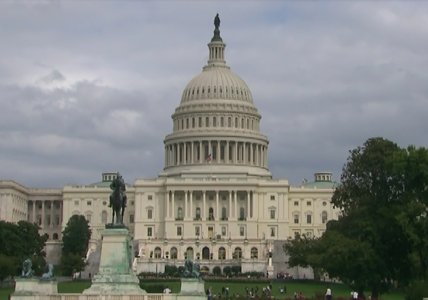
Full Episode: November 18, 2011
As the GOP candidates debated foreign policy, President Obama met with Asia-Pacific leaders. Newt Gingrich's bumpy climb in the polls. And, what happens if the Super Committee fails to deliver? Plus, SCOTUS to decide constitutionality of health reform. Joining Gwen: Major Garrett, National Journal; Jeanne Cummings, Bloomberg News; Lori Montgomery, The Washington Post; Joan Biskupic, USA TODAY.


Full Episode: December 23, 2011
This week, we look back at 2011 and forward to 2012. We'll analyze battles between Congress and the President, the economy, the killing of Osama bin Laden, the pullout of US troops in Iraq while fighting continues in Afghanistan, and more. Joining Gwen: Helene Cooper, New York Times; Michael Duffy, Time Magazine; Doyle McManus, Los Angeles Times; David Wessel, Wall Street Journal.


Full Episode: December 30, 2011
Four days before the Iowa Caucuses, Mitt Romney and Ron Paul lead, but Rick Santorum may surprise come voting day. Plus, how will Congressional retirements affect Democrats' efforts to retain control of the Senate in 2012? Joining Gwen from Iowa: Karen Tumulty, The Washington Post; Jeff Zeleny, The New York Times. Around the table: Christina Bellatoni, CQ Roll Call; Susan Davis, USA Today.

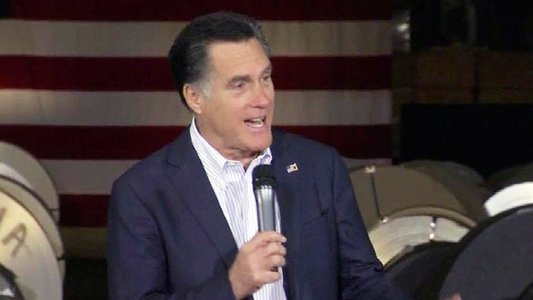
Full Episode: Januuary 6, 2012
This week, we're on the ground in Manchester, New Hampshire to preview the primaries. After a close finish in Iowa, will Mitt Romney stay ahead of the pack in the Granite State? Joining Gwen: Dan Balz, Washington Post; John Dickerson, Slate Magazine and CBS News; Julianna Goldman, Bloomberg News; John Harwood, CNBC and The New York Times.


Full Episode: January 13, 2012
Will Mitt Romney's momentum from successive wins in Iowa and New Hampshire help him win South Carolina? Plus, the Supreme Court will decide on the FCC's authority to regulate the airwaves, and President Obama's aims to shrink government. Joining Gwen: Beth Reinhard, National Journal; Jeanne Cummings, Bloomberg News; Alexis Simendinger, RealClearPolitics.com; Pete Williams, NBC News.

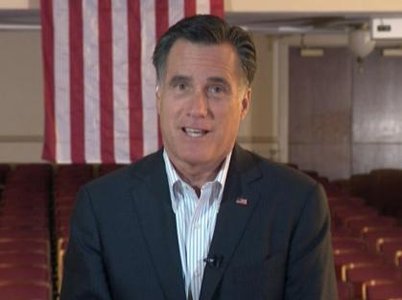
Full Episode: January 27, 2012
Ahead of next week's Florida Republican primary, the 4 remaining candidates squared off on the ground and in two debates. Plus, following his State of the Union Address, President Obama hit the road to push his economic and jobs plan. Joining Gwen: Dan Balz, The Washington Post; John Dickerson, Slate Magazine & CBS News; Jackie Calmes, The New York Times; David Wessel, The Wall Street Journal.


Full Episode: February 3, 2012
What do January's unemployment numbers tell us about the economy? Plus, Mitt Romney won the Florida primary, but his comments about the poor are making headlines. Also, new FEC disclosures shine light on Super PAC money. Joining Gwen: Karen Tumulty, Washington Post; John Harwood, CNBC and New York Times; Doyle McManus, Los Angeles Times; Jim Tankersley, National Journal.


Full Episode: February 17, 2012
As the GOP presidential primary race between Rick Santorum and Mitt Romney tightens, the panel previews the Arizona and Michigan primaries. Plus, President Barack Obama's proposed budget, a deal to extend payroll tax cuts, and tensions over Iran's nuclear program. Joining Gwen: Karen Tumulty, Washington Post; Jackie Calmes, New York Times; Susan Davis, USA Today; Martha Raddatz, ABC News.

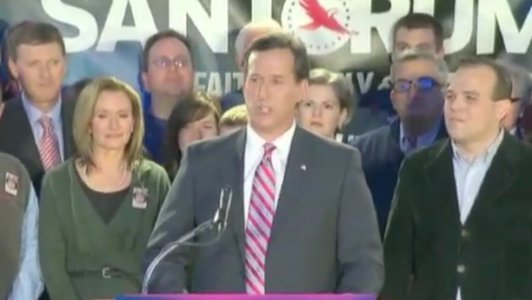
Full Episode: February 24, 2012
Rick Santorum is the main target in the GOP race as 13 states prepare to vote between now and Super Tuesday. Plus, international leaders meet in Tunisia to prevent more bloodshed in Syria. And unrest continues in Afghanistan after the burning of Qurans. Joining Gwen: Michael Duffy, TIME Magazine; Jeanne Cummings, Bloomberg News; Nancy Youssef, McClatchy; Yochi Dreazen, National Journal.

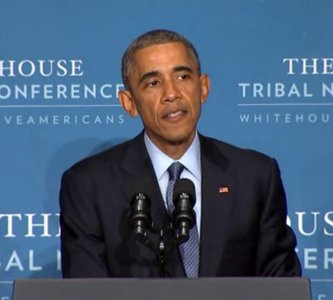
Full Episode: March 2, 2012
As we head into Super Tuesday, which GOP candidate has momentum and how will Tuesday's primaries change the race? Meanwhile, President Obama makes campaign-like speeches in Michigan and New York. Also, Senator Olympia Snow resigns, saying there is no longer bipartisanship in Congress. Joining Gwen: John Dickerson, Slate/CBS News; Gloria Borger, CNN; Charles Babington, Associated Press.


Full Episode: March 30, 2012
The Supreme Court heard three days of arguments on the 2010 Affordable Care Act. What were the key issues before the court? Plus, a mic catches a private comment between President Obama and Russian President Medvedev. Also, Mitt Romney's latest endorsements and the GOP race. Joining Gwen: Joan Biskupic, Reuters; Pete Williams, NBC News; Jeff Zeleny, New York Times; Julianna Goldman, Bloomberg News

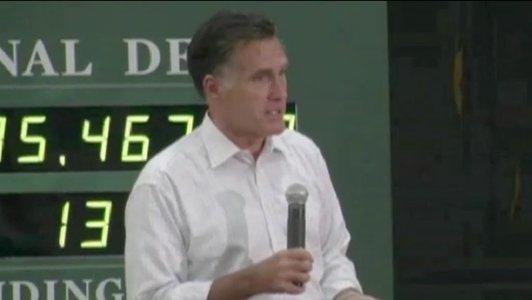
Full Episode: April 6, 2012
After three big wins Mitt Romney has scored more than half of the delegates needed for the GOP presidential nomination. Plus, new unemployment numbers shed light on the economy. Also, female voters, the President's Supreme Court remarks and more. Joining Gwen: John Dickerson, Slate Magazine/CBS News; Karen Tumulty, Washington Post; Jackie Calmes, New York Times; David Wessel, Wall Street Journal.

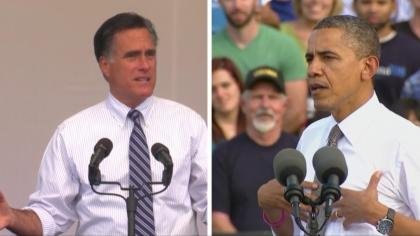
Full Episode: April 27, 2012
As the campaigns look ahead, Mitt Romney targets Barack Obama, but he is targeting youth voters. The Supreme Court hears arguments on Arizona immigration law. Also, a year after Osama bin Laden's death, balancing terrorism and civil liberties. Joining Gwen: John Dickerson, Slate Magazine/CBS News; Alexis Simendinger, RealClearPolitics; Pete Williams, NBC News; James Kitfield, National Journal.


Full Episode: May 4, 2012
The U.S. and China continue to negotiate over activist Chen Guangcheng's travel to America. Plus, President Obama visited Afghanistan on the one year anniversary of Osama bin Laden's death. Also, new unemployment numbers and the 2012 presidential race. Joining Gwen: Martha Raddatz, ABC News; Peter Baker, New York Times; David Wessel, Wall Street Journal; Charles Babington, Associated Press.


Full Episode: May 11, 2012
What's the political fallout of President Obama's support for same-sex marriage? Plus, longtime Senator Richard Lugar, R-Ind., lost his party's primary. What does that mean for moderate republicans and incumbents? Also, the double-agent al-Qaeda plotter. Joining Gwen: Major Garrett, National Journal; John Dickerson, Slate Magazine & CBS News; Susan Davis, USA Today; Pierre Thomas, ABC News.


Full Episode: June 1, 2012
What do disappointing job numbers mean for the already unemployed and the state of economic recovery? Mitt Romney wins enough delegates to make him the unofficial Republican nominee and finds himself in a dead heat with President Obama in three key swing states. Plus the latest on the crisis in Syria.

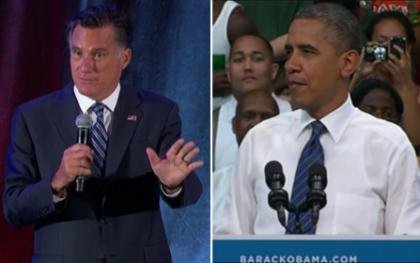
Full Episode: June 22, 2012
Mitt Romney and President Obama court Latino voters as immigration politics enters the spotlight. Plus, Obama invokes executive privilege as Attorney General Eric Holder faces a contempt of Congress charge. Also, what’s Europe’s economic future? This Week: Jeff Zeleny, New York Times; Laura Meckler, Wall Street Journal; Major Garrett, National Journal; Doyle McManus, Los Angeles Times.

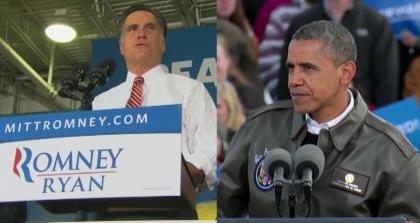
Full Episode: July 6, 2012
President Barack Obama campaigns in Ohio and Pennsylvania and accuses Romney of outsourcing jobs during his time at Bain Capital. Meanwhile, Mitt Romney says that the federal health care mandate is indeed a tax. Plus, new unemployment numbers. Joining Gwen: Dan Balz, The Washington Post; Jan Crawford, CBS News; Charles Babington, Associated Press; Amy Walter, ABC News.


Full Episode: July 13, 2012
This Week, President Barack Obama and Mitt Romney both campaigned in battleground states. Obama called for an extension of middle class tax cuts while Romney addressed the NAACP. Also, House Republicans voted to repeal the president's health care law. Joining Gwen: Michael Duffy, TIME Magazine; Lori Montgomery, The Washington Post; Alexis Simendinger, RealClearPolitics; Sam Youngman, Reuters.


Full Episode: July 20, 2012
A horrific mass shooting at a movie theatre near Denver, Colorado. The campaigns talk about tax history and economic policy as attack ads from both campaigns intensify. And the fighting in Syria spreads to Damascus as the rebels achieve new victories. Joining Gwen: Pierre Thomas, ABC News; Karen Tumulty, The Washington Post; Jeff Zeleny, The New York Times; Doyle McManus, Los Angeles Times.

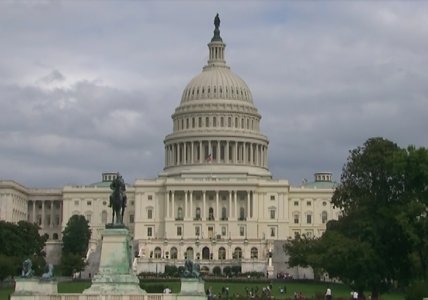
Full Episode: August 3, 2012
Mitt Romney and President Obama rally undecided voters in battleground states. The Tea Party scores a big victory in Texas with Senate nominee Ted Cruz. Plus July jobs numbers and Congress starts its summer recess with key legislation left undone. Joining Gwen: Amy Walter, ABC News; Karen Tumulty, The Washington Post; David Wessel, The Wall Street Journal; Susan Davis, USA Today.


Full Episode: August 10, 2012
New polls show that the presidential race is as close as ever. Mitt Romney and President Barack Obama campaign in key swing states as the campaigns and super PACs release more controversial advertisements. Also, when will Romney pick his running mate? Joining Gwen: Jeff Zeleny, The New York Times; Beth Reinhard, National Journal; John Harwood, CNBC and The New York Times.


Full Episode: August 17, 2012
Mitt Romney’s campaign received a jolt after announcing his running mate, Rep. Paul Ryan. Both campaigns came out swinging with new attacks ranging from policy to personal. Will Paul Ryan’s addition to the campaign change the direction of election? Joining Gwen: Jackie Calmes, The New York Times; Alexis Simendinger, RealClearPolitics; John Harris, POLITICO.


Full Episode: August 24, 2012
A Special Washington Week from St. Petersburg, Florida ahead of the Republican National Convention. How did the Mitt Romney campaign attempt to remain on-topic amidst the Todd Akin debacle? Why are the candidates sparring over Medicare again? Joining Gwen: Dan Balz, Washington Post; Beth Reinhard, National Journal; John Dickerson, Slate and CBS News; Amy Walter of ABC News.


Full Episode: August 31, 2012
Special Washington Week from Charlotte, North Carolina: Did Mitt Romney fulfill expectations at Republican National Convention? Plus what affect did Clint Eastwood's unscripted speech have? Also, we preview the Democratic National Convention. Joining Gwen: Jeff Zeleny, New York Times; Karen Tumulty, Washington Post; Alexis Simendinger, Real Clear Politics; John Hardwood of CNBC / New York Times.

© 1996 - 2026 WETA. All Rights Reserved.
PBS is a 501(c)(3) not-for-profit organization
